

Travel healthy with Kaiser Permanente
Whether you’re going for a weekend getaway or a month-long stay, you’ll enjoy the journey more when you feel your best. Here are a few easy ways to keep wellness a priority as you plan a great trip.
Check in with us before you go
- Your doctor can help you take care of any routine care needs—like checkups and flu shots—before you start your travels, and assist you with managing a chronic condition during your trip.
- It’s important to make sure your immunizations are up to date , especially if you’re leaving the country. Talk to your doctor about any additional immunizations you may need .
- You’ll want to refill your prescriptions , including contact lenses. Be sure to order refills at least 1 to 2 weeks before you’ll need them.
Pack wisely for wellness
- Carry your Kaiser Permanente ID card, which has important phone numbers on the back. (If you’ve lost your card, order a new one before your trip.)
- Pack the phone number for your doctor’s office, along with a printed summary of your online medical record .
- Keep important medicines in your carry-on bag, not your checked baggage, in case your luggage gets lost. And so they’re easily identified, keep your medications in their original packages.
- Take a first aid kit. Talk to your doctor about what contents may be useful depending on where and how long you plan to travel and the medical care available at your destination.
Keep in touch
- Register on kp.org so you can access your medical record and email your doctor—anytime, anywhere.
- Get the Kaiser Permanente app (for iPhone® and Android™ ) for on-the-go travel support. 1
When it comes to having a happy travel experience—and returning home in one piece—a little planning can make a big difference. Kaiser Permanente can help, so no matter where you go, save the Away from Home Travel Line number to your phone so it’s easy to find: 951-268-3900 (TTY 711 ). 2 Our travel team can help you 24/7 with questions about health coverage, care, and claims. Happy landings!
1 Apple, iPhone, and the Apple logo are trademarks of Apple, Inc., registered in the U.S. and other countries. App Store is a service mark of Apple, Inc., registered in the U.S. and other countries. Google Play, the Google Play logo, and Android are trademarks of Google LLC.
2 This number can be dialed inside and outside the United States. Before the phone number, dial 001 for landlines, or +1 for mobile lines if you’re outside the country. Long-distance charges may apply, and we can’t accept collect calls. The phone line is closed on major holidays (New Year’s Day, Easter, Memorial Day, July Fourth, Labor Day, Thanksgiving, and Christmas). It closes early the day before a holiday at 10 p.m. Pacific time (PT), and it reopens the day after a holiday at 4 a.m. PT.
Recent Posts

- previous post: Preparing for fun and eye safety in the sunny season
- next post: Calcium supplements: What you need to know
- Health & Wellness Health & Wellness
- Who We Are Who We Are
- Commitments & Impact Commitments & Impact
- Health & Wellness Health & Wellness Our care Health research Climate events & health Recipes Health tips
- Who We Are Who We Are Our mission Fast facts Our history Our people Leadership team Permanente Medicine Annual reports Risant Health
- Commitments & Impact Commitments & Impact Healthy communities Equity, inclusion, & diversity Public policy
- Our care Health research Climate events & health Recipes Health tips
- Our mission Fast facts Our history Our people Leadership team Permanente Medicine Annual reports Risant Health
- Healthy communities Equity, inclusion, & diversity Public policy
Getting care while traveling just got easier
Kaiser Permanente’s agreement with Cigna provides more convenient access to care when you’re away from home.
The last thing anyone wants to worry about while traveling for work or on vacation is how to get emergency or urgent health care if you need it during your trip. A new collaboration with Cigna eases that concern for Kaiser Permanente members.
Our members who are away from home can now access Cigna’s national PPO, or preferred provider organization, network of physicians and providers should they need emergency or urgent care during their travels.
“This new feature provides our members an improved experience, added convenience, and greater confidence that if they get sick or are injured while away from home, they will have access to great care,” said Arthur Southam , MD, executive vice president of health plan operations for Kaiser Permanente. “This gives our members another option to get the high-quality care they need, wherever they are.”
More ways to get care
Our members now have even more ways to get care when and how they need it — virtually and in person. With Get Care Now on kp.org , members have 24/7 access to care from Kaiser Permanente health care professionals by phone or video. For in-person care while away from home, Kaiser Permanente members are covered for urgent and emergency care, anywhere in the world. This new access to Cigna’s U.S. provider network makes getting that care easier and more convenient.
As part of this improved experience with Cigna, members with Kaiser Permanente HMO or exclusive provider organization plans won’t pay up front or have to file a claim for reimbursement — they will only be responsible for their regular copay or other cost share.
And if it’s more convenient, members can still go to any urgent or emergency care facility while traveling and submit a claim to Kaiser Permanente for reimbursement.
Learn more about how to get urgent or emergency care away from home .
Helpful tips before traveling
Are you a Kaiser Permanente member who travels on business trips, to visit family, or for vacation? Make sure you know how to get care while away from home.
- Register on kp.org so you can see your health information online and email your Kaiser Permanente doctor’s office with nonurgent questions anytime.
- Get our Kaiser Permanente app to stay connected when you’re on the go and for quick access to your digital ID card. You can also order a new or replacement card before you travel.
- Save the Away from Home Travel Line phone number, 951-268-3900 (TTY 711), to your mobile device for travel support anytime, anywhere.
- See your doctor (sign in required) if you need to manage a condition during your trip.
- Refill your eligible prescriptions (sign in required), including contact lenses, to have enough while you’re away. Be sure to refill at least 1 or 2 weeks before your trip so there’s time to process your request.
- If you travel by plane, keep your prescription medications with you in your carry-on baggage.
- Make sure you understand what services are covered while you travel . Call the Away from Home Travel Line if you have any questions.
Visit kp.org/travel to learn more.
Note: The Cigna PPO Network refers to the health care providers (doctors, hospitals, specialists) contracted as part of the Cigna PPO for Shared Administration. Cigna is an independent company and not affiliated with Kaiser Foundation Health Plan, Inc., and its subsidiary health plans. Access to the Cigna PPO Network is available through Cigna's contractual relationship with the Kaiser Permanente health plans.
The Cigna PPO Network is provided exclusively by or through operating subsidiaries of Cigna Corporation, including Cigna Health and Life Insurance Company. The Cigna name, logo, and other Cigna marks are owned by Cigna Intellectual Property, Inc.
The Cigna PPO Network is not available to HMO and EPO members enrolled in coverage issued by Kaiser Foundation Health Plan of Washington and Kaiser Foundation Health Plan of Washington Options, Inc.
- Share Getting Care While Traveling Is About To Get a Lot Easier on Pinterest
- Share Getting Care While Traveling Is About To Get a Lot Easier on Linkedin
- Share Getting Care While Traveling Is About To Get a Lot Easier on Twitter
- Share Getting Care While Traveling Is About To Get a Lot Easier on Facebook
- Print Getting Care While Traveling Is About To Get a Lot Easier
- Email Getting Care While Traveling Is About To Get a Lot Easier
- Health access
- News and announcements
- Arthur M. Southam MD MBA MPH
- Our organization
- Health and wellness
- Healthy travel

May 7, 2024
Making cancer care more convenient in southern california.
Kaiser Permanente has opened a new Radiation Oncology Center at the Bellflower …

April 9, 2024
Denver fire department annual blood work screenings triple.
It’s easy to put off recommended health screenings, and sometimes even …

March 26, 2024
Donations assure access to affordable health care.
Kaiser Permanente grant and challenge spark $18.7 million for Denver Health’s …
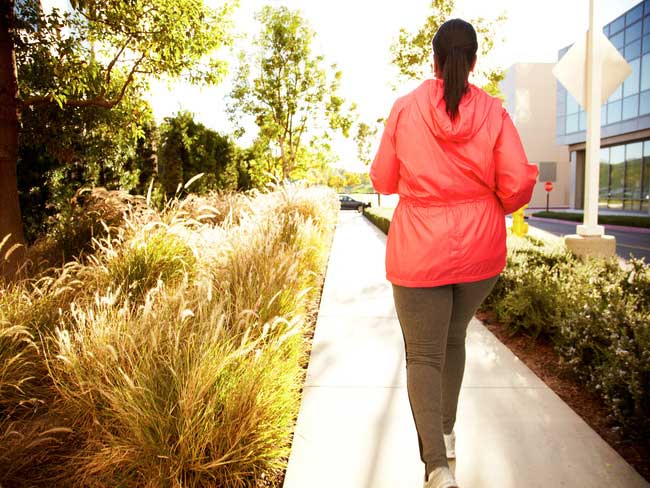
March 18, 2024
Program helps member prioritize her health.
Medical Financial Assistance program supports access to health care.
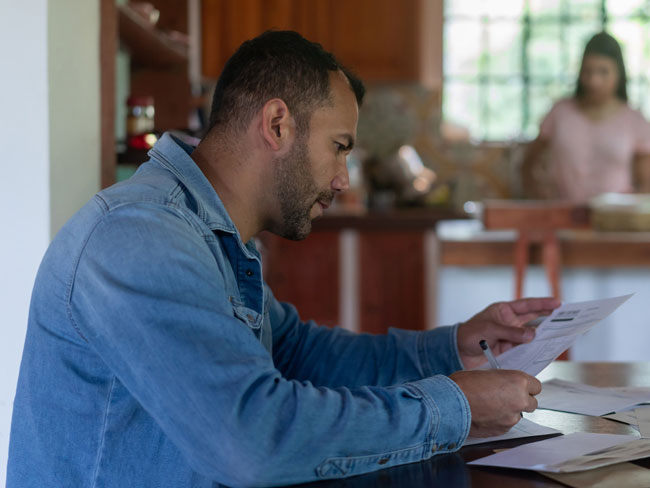
February 26, 2024
Patients can apply for help with medical bills.
Kaiser Permanente offers financial assistance for people struggling to …

February 2, 2024
Expanding medical, social, and educational services in watts.
Kaiser Permanente opens medical offices and a new home for the Watts Counselin …
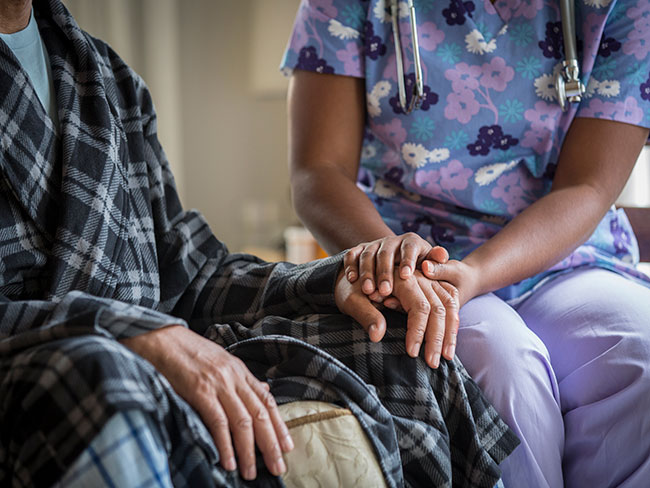
November 9, 2023
Announcing the common health coalition.
Kaiser Permanente, AMA, AHA, ACHP, and AHIP join to strengthen the partnership …

November 1, 2023
Tips for healthy holiday travel.
Six steps help you prep for winter trips.

September 6, 2023
Advancing mental health crisis care through public policy.
Organizations that provide public mental health crisis services must work …

August 28, 2023
Grants improve the total health of our communities.
Kaiser Permanente increases access to mental health services in Southern …

August 2, 2023
Social health resources are just a click or call away.
The Kaiser Permanente Community Support Hub can help members find community …

June 30, 2023
Our response to supreme court ruling on lgbtqia+ protections.
Kaiser Permanente addresses the Supreme Court decision on LGBTQIA+ protections …

June 1, 2023
Policy recommendations from a mental health therapist in training.
Changing my career and becoming a therapist revealed ways our country can …

May 30, 2023
Kaiser permanente commits up to $10 million to denver health.
Funding comes as Denver Health provided $120 million in uncompensated care …
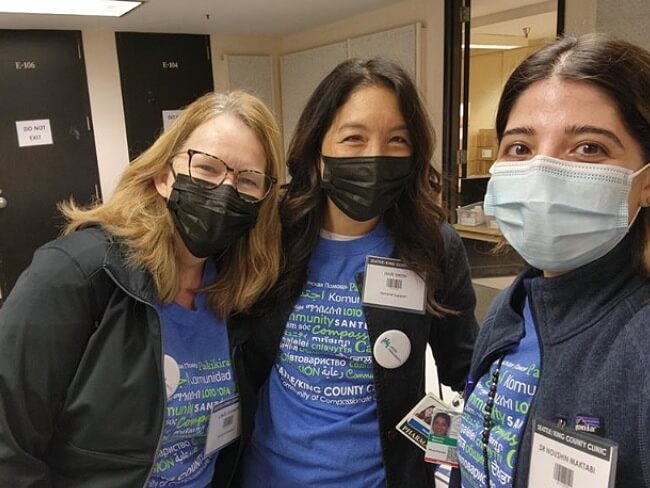
Volunteer-driven clinic offers free care in Washington
The annual Seattle King County Clinic brings health care to low-income …

May 22, 2023
Investing and partnering to build healthier communities.
Kaiser Permanente supports Asian Americans Advancing Justice to promote …
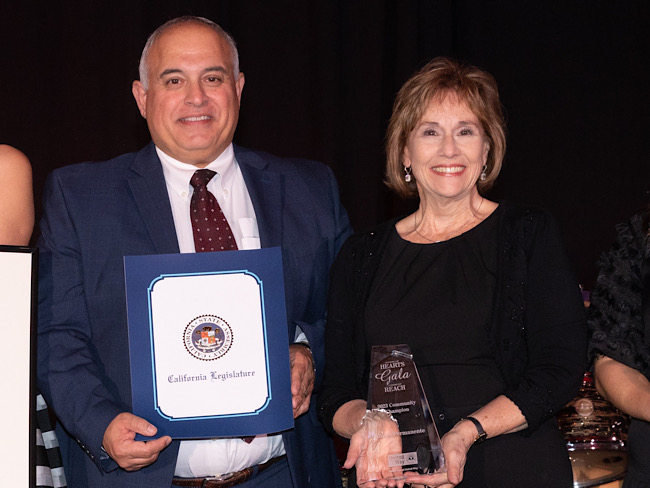
May 19, 2023
Partnering to improve the health of homeless individuals.
Grant funds will combat housing inaccessibility and improve health care …
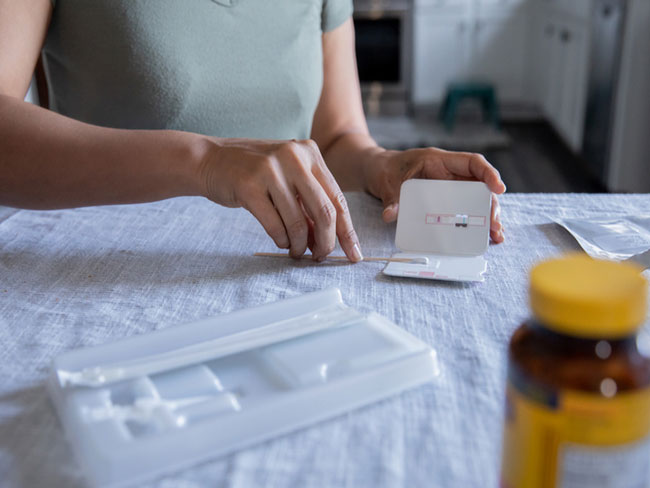
May 11, 2023
Covid-19 testing, testing — get results in 1, 2, 3.
Testing is the most important way you can help control the spread of COVID-19.
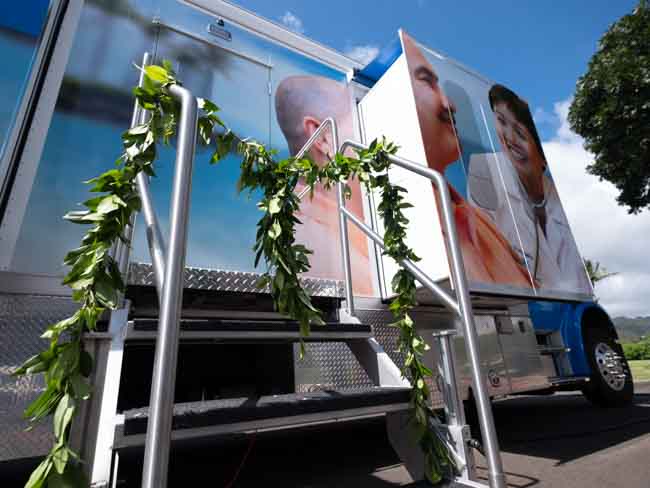
April 7, 2023
Increasing access to health care.
Kaiser Permanente launches new mobile health vehicle on Oahu.

March 13, 2023
Making waves with our first female sports ambassador.
Kaiser Permanente in Southern California partners with San Diego Wave Fútbol …

January 27, 2023
Timely flu vaccinations at community events.
Proactive flu prevention outreach in Downey, California.
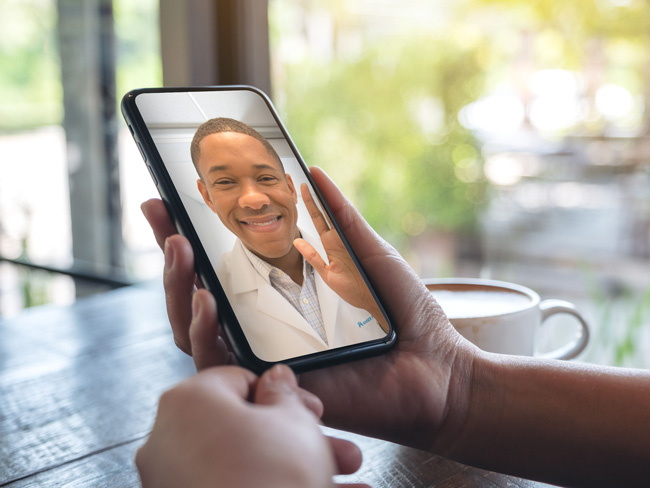
January 17, 2023
Lawmakers must act to boost telehealth and digital equity.
Making key pandemic-era telehealth policies permanent and ensuring more …
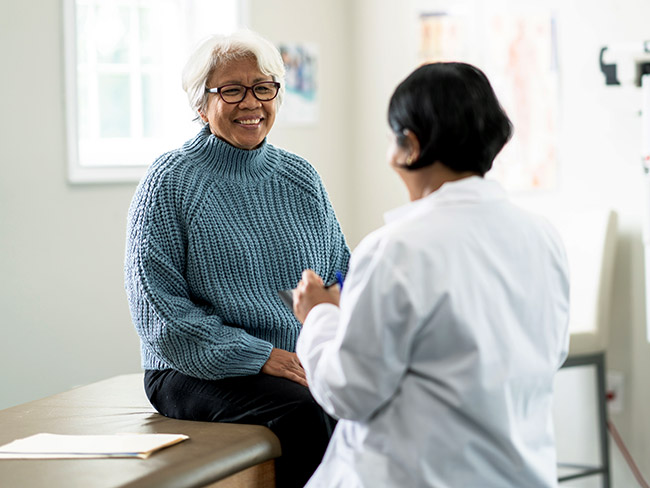
November 8, 2022
Protecting access to medical care for legal immigrants.
A statement of support from Kaiser Permanente chair and CEO Greg A. Adams …

October 26, 2022
Watts community project reaches construction milestone.
Our expansion in Watts is part of a broader community health commitment …
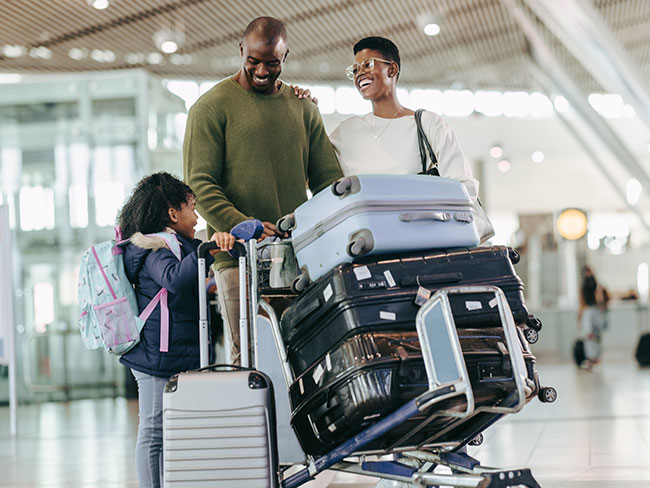
October 5, 2022
Safe travels: our members now have more u.s. care options.
Need urgent care in Florida? Michigan? Alaska? Here are 2 ways we’ve made …

August 17, 2022
2021 annual report sheds light on another challenging year.
We reflect on 3 major COVID-19 surges, urgent vaccination efforts, and …
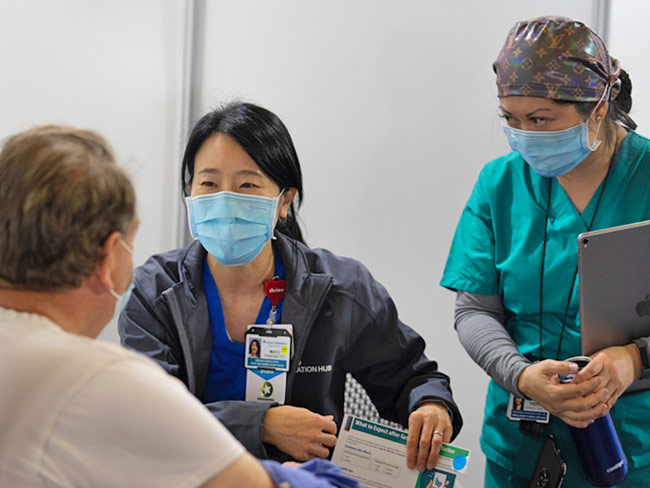
August 12, 2022
Preserving affordable health care coverage for millions.
Congress should act to make COVID-19 policies permanent and ensure millions …
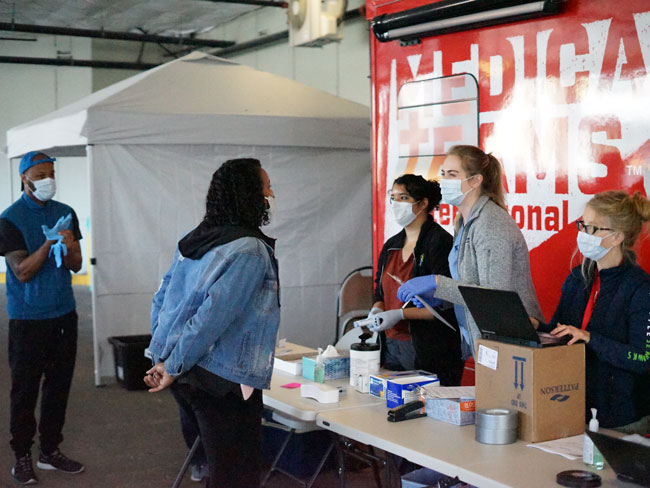
August 8, 2022
Kaiser permanente and medical teams launch mobile services.
Mobile dental and medical clinics are now available for uninsured individuals …
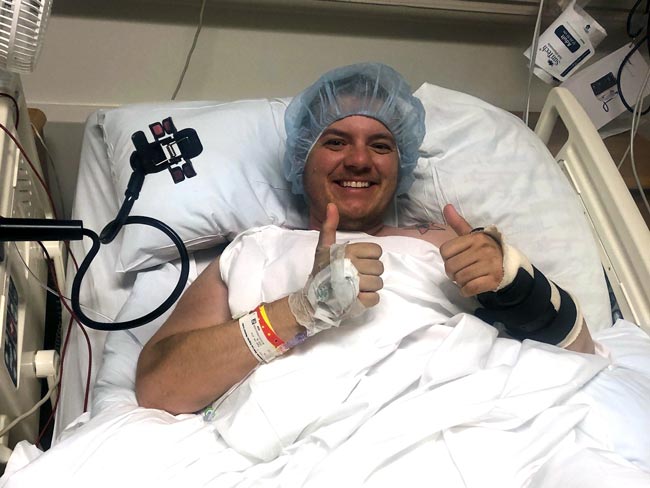
March 30, 2022
A transgender man’s journey to become himself.
A Kaiser Permanente member receives physical and emotional support from …

February 4, 2022
Expanding medi-cal enrollment, improving quality.
Kaiser Permanente, state of California reach agreement to cover more people …
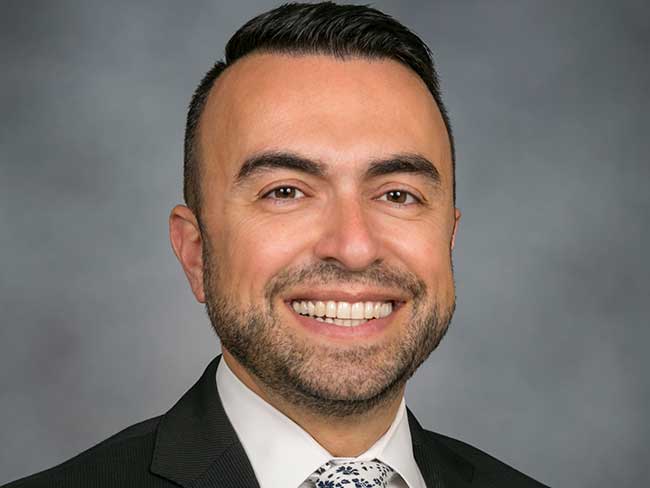
November 30, 2021
Bechara choucair, md, returns as chief health officer .
After serving on the White House COVID-19 response team, Bechara Choucair, …

October 28, 2021
When things fell apart, telehealth was her lifeline.
Stuck at home during the pandemic, a Kaiser Permanente member with autoimmune …
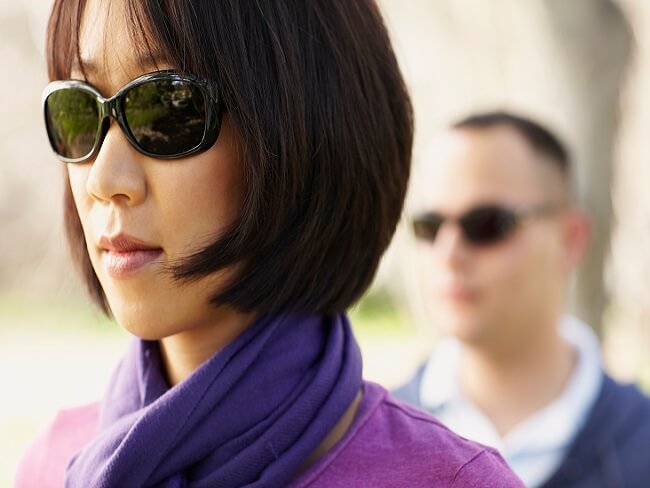
July 13, 2021
Taking a stand against anti-asian hate.
Kaiser Permanente and Advancing Justice — AAJC support Asian Americans, …
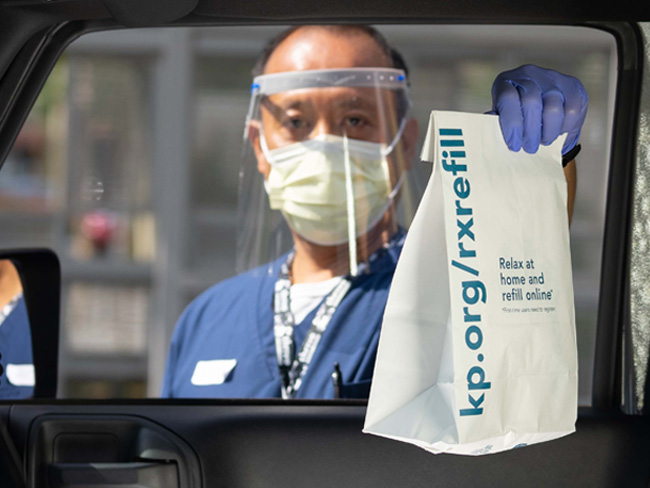
June 23, 2021
Our 2020 annual report reflects on a unique year.
Commitment to high-quality, affordable, compassionate care remains in a …
April 1, 2021
Campaign strives for equitable covid-19 protection.
The goal is to fill information gaps for COVID-19 prevention and vaccines, …
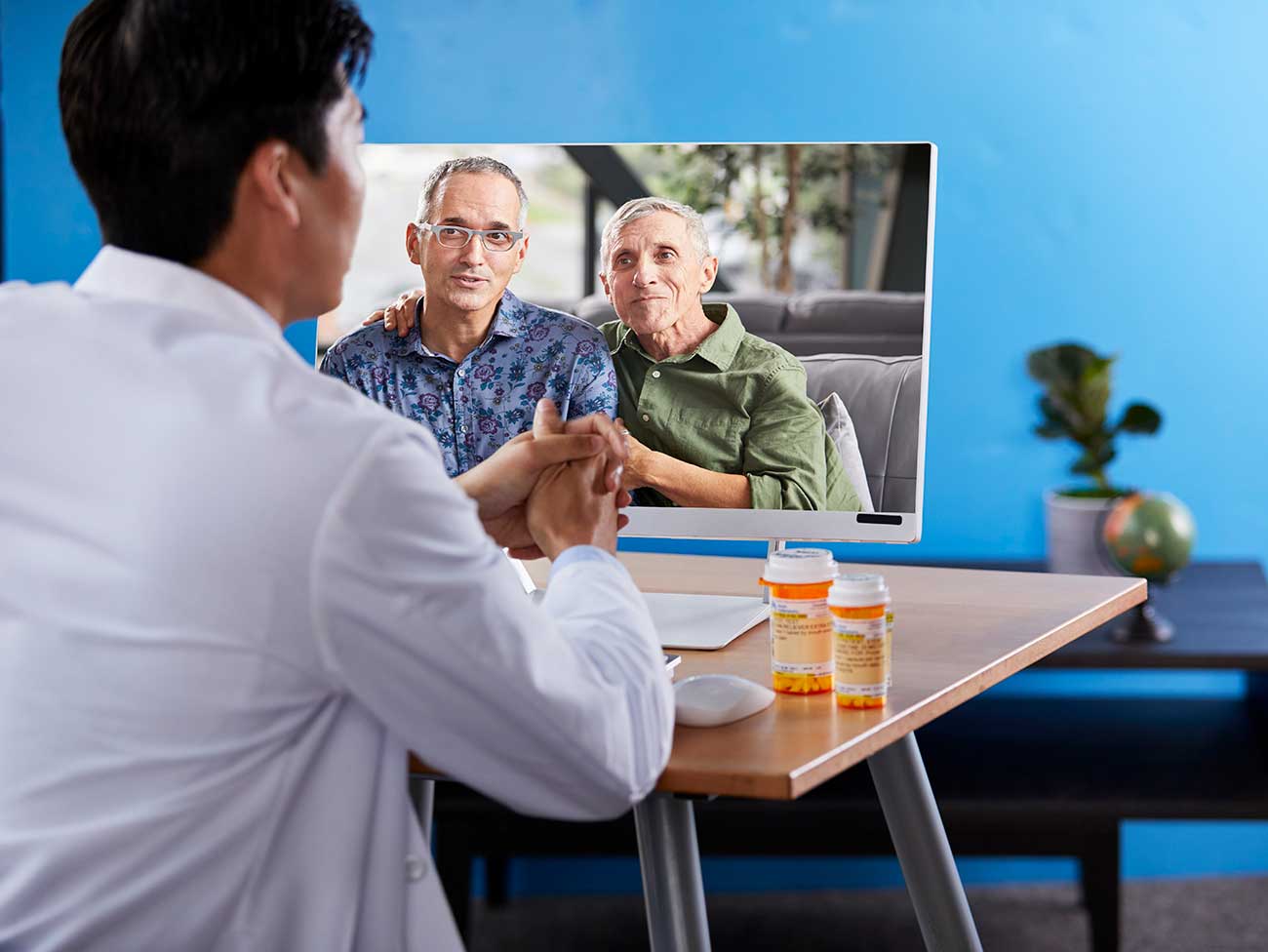
November 23, 2020
Top of the class in customer care.
Newsweek names Kaiser Permanente as the nation’s best for customer service, …
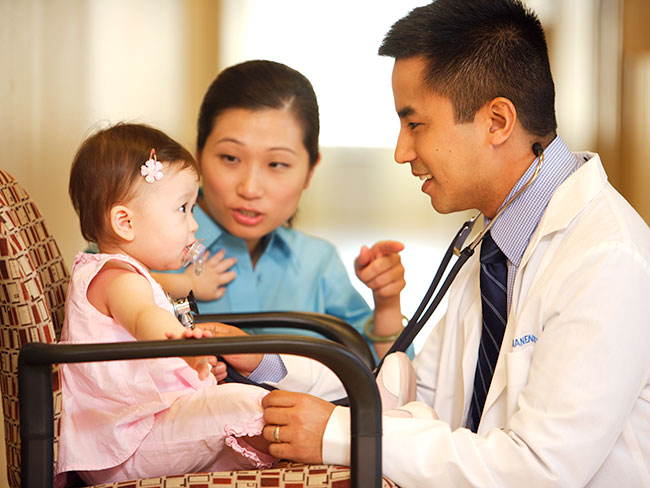
July 21, 2020
Transcending language barriers in health care for decades.
Good communication is key to good health. During Kaiser Permanente’s 75th …
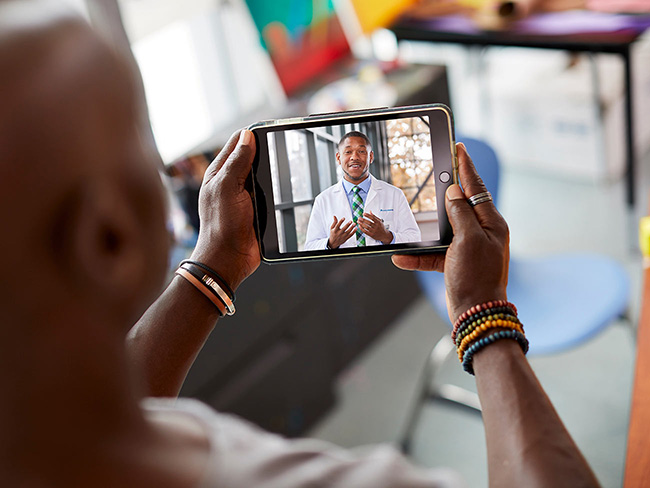
July 1, 2020
A breakout moment for virtual care.
Kaiser Permanente’s fully integrated telehealth capabilities place quality …
News and views from one of America’s leading health care providers and not-for-profit health plans.
On this site.
Privacy Statement Notice
✖ Close
Member Sign In
Care away from home
If you become ill or injured while traveling, you’re covered for urgent and emergency services anywhere in the world. Call the Consulting Nurse Service for help deciding where to get care and Member Services for details on your coverage.
Travel Advisory Service
Planning a trip outside the United States? Our Travel Advisory Service offers recommendations tailored to your travel. Nurses certified in travel health will advise you on any vaccines or medications you need based on your destination, activities, and medical history. The consultation is not a covered benefit and there is a fee for a Kaiser Permanente member using the service for the first time. Travel-related vaccinations and medications are usually not covered. Visit kp.org/wa/travel-service for more details.
While You're Traveling
Need care while traveling? Call Member Services at 1-877-832-9919. They can help you find the closest in-network care option, whether you're traveling within the United States or internationally. Note that virtual care could be limited outside of Washington state due to state laws that may prevent doctors from providing care across state lines. Laws differ by state.
Emergency and urgent care
If you need emergency care and are admitted to a non-network hospital, you or a family member must notify us within 24 hours or as soon as possible, after care begins, or as soon as is reasonably possible. Call the notification line listed on the back of your Kaiser Permanente member ID card to help make sure your claim is accepted. Keep receipts and other paperwork from non-network care. You’ll need to submit them with any claims for reimbursement after you get back.
Dedicated Member Services for Boeing Employees

Speak with a representative Monday through Friday, 8 a.m. to 5 p.m.
Provider Directory
Find a provider in the Virtual Plus – Connect Network

Getting Care
Learn more about convenient ways to access care
- Profile & Preferences
- My Documents
Our other sites
There's a chat in progress.
Travel Health
Top of the page
How can you stay healthy on your trip?
The best way to stay healthy on your trip is to plan before you go. If you are planning to travel to another country, see a doctor several months before you leave so you will have time for vaccines (immunizations) that you may need to get ahead of time.
Also ask your doctor if there are medicines or extra safety steps that you should take. For example, if you have asthma, you may have to avoid stays in polluted cities. Or someone visiting the tropics may need to take medicine to prevent malaria .
What precautions should you take while you travel?
Before you go, learn about the places you plan to visit. For example, find out if the water is safe to drink or if you need to worry about malaria.
Basic safety can prevent some problems:
- Developing countries may not have safe tap water. When visiting these places, drink only beverages made with boiled water, such as tea and coffee. Canned or bottled carbonated drinks are usually a safe choice. Don't use ice if you don't know what kind of water was used to make it.
- Do not eat raw vegetables, raw fruits, or raw or undercooked meat and seafood.
- In areas where mosquito-borne illnesses are found, use DEET insect repellent. Wear long pants and long-sleeved shirts, especially from dusk to dawn. Use mosquito netting to protect yourself from bites while you sleep.
- Motor vehicle accidents are a leading cause of injury among travelers. If you drive, be sure to learn the custom and rules. If you use hired drivers (such as in a taxi), don't be afraid to ask your driver to slow down or to drive more carefully. Use seat belts if possible.
What if you get sick while you are traveling?
If you become seriously ill while traveling, your country's embassy or consulate can help you find medical care. For a complete list of embassies and consulates, see the U.S. Department of State website at www.usembassy.gov. You can also get the contacts for local doctors and medical clinics. If you become ill with a fever or flu-like illness while traveling, seek medical attention immediately.
Should you see a doctor when you return?
If you were healthy during your trip and you feel well when you return home, you probably don't need to see a doctor.
See your doctor when you get home if either of the following occurs:
- You were sick with a fever or severe flu-like illness while traveling.
- You develop these symptoms within 6 months of coming home.
Tell your doctor the places you visited and whether you think you may have gotten a disease. Many diseases don't show up right away. And some can take weeks or months to develop.
- Health Tools
Health Tools help you make wise health decisions or take action to improve your health.
- Sleep Problems: Dealing With Jet Lag
- Before You Go
Proper planning is the best way to stay healthy during your trip. This takes time. You'll want to gather both travel and health information, and think about your special needs.
This will help make sure you have time to get vaccines or make other health preparations.
Most travel, even if you are going on a guided tour, typically demands more physical effort than is required at home. Boost your fitness by starting an exercise program, such as fitness walking, in advance.
Include items such as pain relievers, sunscreen, insect repellent, moleskin, antifungal and antibacterial ointments, medicine for motion sickness, and antidiarrheal medicines.
If your insurance company doesn't cover you in other countries, you may want to think about buying travel health insurance. Use the Internet to search for "travel insurance compare" to get websites that help you compare types of travel insurance.
Getting the information you need
- www.cdc.gov/travel. This website is for the Centers for Disease Control and Prevention (CDC).
- www.who.int/ith/en. This website lists information from the World Health Organization (WHO) on travel, required immunizations, and disease outbreaks.
- Find out where you can get the best medical care in the region you are visiting. See the U.S. State Department's website at www.usembassy.gov. It lists every U.S. embassy worldwide. It also lists some doctors and medical facilities in those countries.
- Take along the phone numbers and addresses of embassies in the areas you will visit. They can help you find a doctor or hospital. Find out if your insurance company will cover you. You may want to get special travel health insurance.
- If you are taking a cruise, you can find your ship's health record on this website: www.cdc.gov/nceh/vsp.
Getting needed vaccines
Depending on where you're visiting and how long you'll be there, you may need vaccines to protect against childhood infections, tetanus, or other diseases. Check with the nearest travel health clinic, your regional health department, your doctor, or the U.S. Centers for Disease Control and Prevention website (www.cdc.gov/travel) to see which vaccines you need.
Personal health needs
If you have any chronic diseases or other health concerns, such as birth control or allergies, see your doctor. You may need to take other steps or make adjustments in your travel plans.
- A letter from your doctor describing your conditions
- A list of your routine medicines including their generic names
- Written prescriptions for refills if you will be gone long
Your name must match the name on the bottle. Pack them in a waterproof container in your carry-on luggage. Take extra amounts of your routine medicines packed in checked luggage in case of theft or loss.
This will help with a comparison in case you have chest pain or other symptoms.
For example, wear a medical identification tag and take extra medicine with you.
- Avoid stays in polluted cities or at high altitudes if you have asthma, chronic obstructive pulmonary disease (COPD), or other lung diseases.
If you decide to travel, take some general precautions while traveling, such as notifying the airline of your condition before you fly. Consider wearing compression stockings and taking a few walks while on a long flight to increase the blood circulation in your legs. (Taking walks is good advice for all travelers.)
- Diabetes: Travel Tips
- First Aid Kit for Travelers
- Immunizations
- Traveling With Oxygen
- Precautions Along the Way
Tips for flying
Flying isn't always fun. But you can take steps to make it easier and to feel better during and after your flight.
Examples include gels, liquids, sharp scissors, or pocket knives. See the Transportation Security Administration website at www.tsa.gov/travel for an updated list of what isn't allowed in carry-on luggage.
These are easy to remove when you go through security at the airport. They will also be more comfortable if your feet swell on the plane.
Sitting still slows down the blood flow in your legs and raises your blood clot risk. Consider wearing compression stockings.
Examples include drinking plenty of liquids and changing your sleep schedule to the new time zone.
If you have a fear of flying, talk to your doctor. The doctor may recommend medicines; hypnosis; or breathing, visualization, and relaxation exercises to help you feel less afraid.
Water and food safety
Contaminated water and food are the most common cause of illness in travelers.
- Don't drink tap water if it may not have been properly treated.
- Don't brush your teeth with tap water.
Canned or bottled carbonated beverages (including bottled water and soft drinks), beer, and wine are also usually safe.
It may be contaminated.
- Dry the opening of wet cans or bottles before taking a drink.
- Avoid raw fruits (unless you wash and peel them yourself), raw vegetables, and raw or undercooked meat and seafood.
- Try to eat steaming hot, well-cooked food.
- Don't get foods or drinks from street vendors.
- Make sure dairy products have been pasteurized.
Taking the above precautions with food can help prevent infections, like tapeworm .
Travelers to backcountry areas of North America should also take precautions with water. Even though the water in high mountain lakes looks sparkling clear, it may be contaminated with Giardia intestinalis , the parasite that causes giardiasis . Take simple precautions to avoid this illness, such as boiling the water.
Swimming and water sports
Swimming in contaminated fresh water, such as ponds or rivers, can expose you to diseases. Even swimming pools with inadequate chlorination pose a risk. Talk to your doctor if you plan on doing recreational water sports—such as white-water rafting, adventure racing, or kayaking—in tropical and backcountry regions.
To prevent fungal or parasitic infections and injuries, do not go barefoot. Try to keep your feet as clean and dry as possible.
Although sea water is usually safe from disease, swimming or diving in sea water can still be dangerous. Avoid swimming or wading in sea water near a river, estuary, or other outlet from inland. Swimming when you have an open cut or sore can also increase your risk of getting an infection. In developing countries, sea water around big cities and other populated areas may not be safe.
Insect-borne disease
Mosquitoes, flies, fleas, and ticks all spread disease such as malaria , Lyme disease , and West Nile fever .
Malaria is the insect-borne disease of most concern to travelers in tropical and subtropical regions. Although antimalarial medicines kill the malaria parasite in the bloodstream, this protection isn't complete. Take protective measures along with taking antimalarial medicine.
Ticks inhabit many regions, including Europe, Canada, and the United States. Although it is rare for travelers to contract diseases from ticks, some of the diseases are serious.
Here are some tips that can help you avoid mosquitoes and other insects.
- Use DEET or other insect repellents on your skin.
Permethrin or deltamethrin insecticide sprayed on bed nets will protect against mosquitoes for weeks to months.
The smoke from these slow-burning coils repels mosquitoes.
This is especially important from dusk to dawn, when mosquitoes that spread malaria and other diseases bite. Insect repellent applied to clothing is effective for longer than it may be on the skin.
They do not prevent bites.
Sun and heat exposure
Many travelers underestimate the sun's strength and overestimate the amount of protection their sunscreen offers. This may cause an uncomfortable sunburn and other skin damage.
- Protect yourself from the sun by using sunscreen and wearing a hat and sunglasses.
- Before you travel to a hot environment, improve your ability to handle heat. Start by exercising for a short time in the heat. Then for the next 2 to 3 weeks, slowly increase the time you exercise in the heat.
- If you are not used to the heat, limit your time outside in the hottest part of the day.
- Drink plenty of water.
- Do not drink alcohol. It increases your risk for dehydration.
- Know if you take medicines that may make heat-related illness more likely. If you take medicines regularly, ask your doctor for advice about hot-weather activity and your risk for heat-related illness.
Injuries and other concerns
Although disease is a big risk while you are traveling, you should also be aware of the risk of injury and other concerns.
They are a leading cause of injury among travelers. Bad roads, poor driver training, and crowded roadways can make driving dangerous in other countries.
- Learn local driving customs and road signs.
- Try to travel during daylight.
- Always use seat belts.
- Ask taxi drivers or other hired drivers to slow down or drive more carefully if you feel unsafe.
- Wear helmets and protective clothing when riding motorcycles or bicycles.
Take care around dogs and other animals. Dogs in developing countries may bite, and rabies is a concern. If you are bitten by an animal, wash the bite with clean water and seek medical attention immediately.
Most wounds sustained in developing countries carry a higher risk of becoming infected.
- If you get even a minor wound, clean it as soon as possible with large amounts of warm, clean water.
- Apply a thin layer of petroleum jelly, such as Vaseline, and a bandage.
But if you don't get a tetanus shot before you leave, you should get one after an animal bite or an injury that results in a break in the skin.
The motion of cars, planes, trains, boats, or ships can make some people sick.
Air pollution can pose a serious threat to those with asthma or other respiratory conditions.
Sexual activity can lead to sexually transmitted infections.
Altitude sickness occurs when you cannot get enough oxygen from the air at high altitudes.
It happens most often when people who are not used to high altitudes go quickly from lower altitudes to 8,000 ft or higher. When you go too high too fast, your body cannot adjust.
Altitude sickness can range from mild to life-threatening. With good planning, such as ascending slowly or taking certain medicines, it is often preventable.
Scuba diving safety
You will learn about safety in your scuba diving certification class. If you plan to get certified while traveling, find an experienced, certified teacher that you feel comfortable with. Several groups, including the Professional Association of Diving Instructors (PADI) and the National Association of Underwater Instructors (NAUI), certify instructors and dive shops all over the world.
If you are a new diver, it is best to go with an experienced guide, also called a dive master. Most accidents and problems occur when divers ignore the rules and push their limits. Here are some general diving rules.
- Only dive if you feel comfortable.
- Use equipment that you are familiar with and that is in good repair.
- Know what to do if something goes wrong.
- Always dive with a buddy.
Don't hold your breath.
- Know and follow recommended depths and time limits.
- Allow enough time between your last dive and your flight home.
- Altitude Sickness
- Food Poisoning and Safe Food Handling
- Insect Repellents
- Motion Sickness
- Preventing Deep Vein Thrombosis From Travel
- Protecting Your Skin From the Sun

- What to Do if You Get Ill
Serious illness
Traveler's diarrhea is loose, watery bowel movements you can get when you travel. It also can cause vomiting and belly cramps.
This kind of diarrhea is usually caused by bacteria. But sometimes it is caused by a parasite or virus.
Most people get it when they eat undercooked, raw, or contaminated foods. You can also get it if you drink contaminated water or if you drink something that has contaminated ice cubes in it.
In some cases, new foods can cause diarrhea. In other cases, the stress and anxiety of travel can cause it.
Traveler's diarrhea usually isn't serious. Most of the time, bowel movements return to normal quickly. The most important thing is to prevent dehydration . Make sure to drink a lot of fluids.
- Traveler's Diarrhea
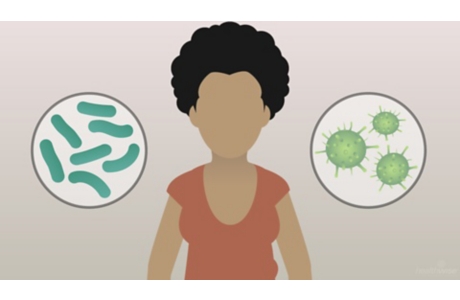
- Post-Travel Care
If you have been healthy during your trip and feel well when you return home, you don't need to see a doctor. But if you've been ill, especially while traveling to regions where disease is prevalent, you need to see a doctor.
Many diseases don't show up right away. Some take weeks to months to develop.
Tell your doctor the regions you visited and about any exposure to disease.
It's important to be aware of other symptoms besides a fever. See your doctor if you have:
- Diarrhea that won't go away or that keeps coming back.
- A skin rash or sores.
- Jaundice (typically most noticeable when the whites of the eyes appear yellow).
- Unexplained weight loss.
- Shortness of breath.
- Related Information
- Dengue Fever
Current as of: October 24, 2023
Author: Healthwise Staff Clinical Review Board All Healthwise education is reviewed by a team that includes physicians, nurses, advanced practitioners, registered dieticians, and other healthcare professionals.
Next Section:
Previous Section:
Author: Healthwise Staff
Clinical Review Board All Healthwise education is reviewed by a team that includes physicians, nurses, advanced practitioners, registered dieticians, and other healthcare professionals.
Topic Contents

This information does not replace the advice of a doctor. Healthwise, Incorporated disclaims any warranty or liability for your use of this information. Your use of this information means that you agree to the Terms of Use and Privacy Policy . Learn how we develop our content .
To learn more about Healthwise, visit Healthwise.org .
© 1995-2024 Healthwise, Incorporated. Healthwise, Healthwise for every health decision, and the Healthwise logo are trademarks of Healthwise, Incorporated.
The Health Encyclopedia contains general health information. Not all treatments or services described are covered benefits for Kaiser Permanente members or offered as services by Kaiser Permanente. For a list of covered benefits, please refer to your Evidence of Coverage or Summary Plan Description. For recommended treatments, please consult with your health care provider.
Switching to {{aocRegion}}
Want to stay signed on?
We are unable to switch you to this area of care, we’re getting your information.
Common questions about our travel service
The Kaiser Permanente Travel Advisory Service offers recommendations tailored to your travel outside the United States. Advice is based on your destination, activities, and medical history. The consultation is done in a scheduled phone visit.
Travel Advisory Service
Here are answers to commonly asked questions.
What is discussed in a virtual international travel visit?
A travel nurse will conduct a risk assessment by reviewing your travel plans, health status, and immunization history. During the phone visit, the nurse will make recommendations, and together you will decide what vaccines and prescriptions you need.
Your discussion will include information about preventing illness and injury during your trip. Particular risks will be addressed as needed, including how to prevent malaria and other mosquito-transmitted diseases, manage traveler’s diarrhea, avoid and treat altitude illness, and manage safety issues associated with certain types of adventure travel.
The travel nurse will contact your primary care physician to authorize travel immunizations and medicines, and your consultation becomes part of your medical record. You will receive a copy of your travel advice in your Kaiser Permanente member site online records, or by postal mail.
How do I make an appointment?
Contact us as soon as you can. Ideally, your phone consultation should be done at least 6 to 8 weeks before departure. However, even if you are leaving soon, the nurse can help you get needed travel vaccinations and medications.
To call for an appointment:
- Seattle area: 206-326-3488
- Toll-free: 1-800-562-6300; ask the operator to transfer you to ext. 3488
To schedule online, you must be registered on the Kaiser Permanente member website. Sign in , go to Appointments, and choose "All Specialties."
When you make your appointment, have this information ready:
- Your Kaiser Permanente member ID, and member IDs of family members traveling with you
- Your departure date and time, length of stay, and the countries you will visit
- Any vaccines you or your family members have received outside of Kaiser Permanente medical offices.
What do travel immunizations cost?
Travel advisory consultation is not a covered benefit. Prices for travel vaccines and medicines may vary depending on your Kaiser Permanente plan.
What travel vaccines are available through Kaiser Permanente medical offices?
The following vaccines are available at Kaiser Permanente medical offices. Yellow fever vaccine is available at Kaiser Permanente medical offices that have obtained federal and state certification to administer that vaccine. Travel vaccines are extra and are not covered benefits.
- Hepatitis A and B
- Japanese Encephalitis
- Meningococcal
- Adult Polio
- Rabies (pre-exposure series)
- Typhoid Fever
- Tick-borne Encephalitis (Ticovac)
- Yellow Fever available at Kaiser Permanente’s MAIN clinics: Capitol Hill, Silverdale, Olympia, Tacoma, Everett, Bellevue and Riverfront)
What should I do if I get sick or am injured while traveling?
If you have a medical emergency while traveling, please seek medical attention immediately.
Before you leave, Member Services may assist you in figuring out what services may or may not be covered under your plan. They can also help you find the closest in-network care option, whether you’re traveling within the United States or internationally. To reach Member Services by phone, you may call 1-888-901-4636. If you’re a Kaiser Permanente Medical Advantage member, call Medicare Member Services at 1-888-901-4600.
If you do seek care while traveling, remember to keep all of your itemized receipts and submit them to Kaiser Permanente Washington’s claims department (see below regarding how to submit a claim). Many countries will ask for payment before service is given.
We also recommend you obtain extra medical insurance that includes emergency medical evacuation insurance.
How do I submit a claim?
How to submit claims for reimbursement lists the kind of information you would need for a claim submittal.
Can I email my doctor while I'm on my trip?
If you receive your primary care at a Kaiser Permanente medical office AND have registered on the Kaiser Permanente member website for access to secure online services, you can exchange secure messages with your doctor and with the Consulting Nurse Service during your trip. (This service is NOT for travel emergencies; responses usually are made by the end of the next business day.) Please note: There will be limitations to the advice provided, since our Kaiser Permanente Medical Providers and Consulting nurses do not hold licenses outside of WA and ID.
You may also call the Consulting Nurse Service 24 hours a day, 7 days a week. Remember to include the international code for the United States: 01-206-630-2244. There isn't a toll-free international number.
The Travel Advisory Service focuses on pre-travel advice. If you need medical attention after you get home for a non-urgent illness or injury that occurred during your trip, contact your personal physician or the Consulting Nurse. They may consult with our Infectious Disease physicians.
How should I prepare for my trip?
- Make sure recommended routine vaccines are up to date including your flu shot.
- Please schedule a visit with your physician to discuss any medical issues you are concerned about before travel or if you need to manage a current condition during your trip.
- Make sure your current daily and as-needed medicine prescriptions are up to date, and you have enough medication while you travel. Requests should be made 1-2 weeks before you travel. You may speak to your primary care provider if you have any questions.
- If you are age 18 and older: Register on kp.org/wa so you may have access to your medical record when traveling and can contact your provider with non-urgent questions when traveling.
- Pack your Kaiser Permanente ID card, as there are important numbers on the back including our Consulting Nurse Service line.
- Take some time to understand what services are covered and available while you travel through Member Services . 1-888-901-4636. They can help you find the closest in-network care option, whether you're traveling within the United States or internationally. If you're a Kaiser Permanente Medicare Advantage member, call Medicare Member Services at 1-888-901-4600.
- We recommend you register your trip with the U.S. State Department Smart Traveler Program (STEP) so you may receive important information from the Embassy about safety conditions in your destination country, help the U.S. Embassy contact you in an emergency and help family and friends get in touch with you in an emergency.
- Car crashes are a leading cause of injury among travelers. Protect yourself from these injuries by: not drinking and driving, wearing your seat belt, using car seats or booster seats in the backseat for children, following local traffic laws, hiring a local driver when possible, avoiding night driving, and wearing a helmet when you ride bikes, motorcycles, and motor bikes.
- Protect yourself and others against respiratory infections by avoiding sick people, washing your hands frequently, covering your cough and encouraging others to cover their coughs. Use an alcohol-based hand sanitizer (60% or more alcohol) whenever soap and running water are not available for hand washing.
- Keep your medications in their original containers and carry them on the plane. If smaller medication quantity and containers are needed, you may request this from your clinic pharmacy before purchasing medications.
- Carry a good first aid kit with you. For ideas on what to include in your kit: http://wwwnc.cdc.gov/travel/page/pack-smart.htm
For further questions about travel or more information please contact the Kaiser Permanente Travel Advisory Department at: 206-326-3838, option #3. We look forward to speaking with you!
More resources
- When you are traveling
- Northern California
- Southern California
- Colorado - Denver/Boulder
- Colorado-Mountain Area
- Northern Colorado
- Southern Colorado
- Mid-Atlantic States
- Oregon/Washington
- Find a Doctor
- Locate a Facility
- Ver contenido en español . pagina externa
- Help in other languages . external page
- Member Sign On . external page
Discover Kaiser Permanente in:
- Antelope Valley
- Baldwin Park
- Kern County
- Los Angeles
- Orange County
- Panorama City
- Riverside County
- San Bernardino County
- Ventura County
- West Los Angeles
- Woodland Hills
- Welcome Tab
- Health care services Tab - Selected
- Downey locations Tab
- Emergency, urgent & after-hours care Tab
- Community & events Tab
- Primary care
- Specialty care
- Maternity & Women’s Health
- Health care ethics & decisions
- Search Kaiser Permanente physicians
- Kaiser Permanente's Care Stories Blog
Travel Advisory Clinic
Security Alert May 17, 2024
Worldwide caution, update may 10, 2024, information for u.s. citizens in the middle east.
- Travel Advisories |
- Contact Us |
- MyTravelGov |
Find U.S. Embassies & Consulates
Travel.state.gov, congressional liaison, special issuance agency, u.s. passports, international travel, intercountry adoption, international parental child abduction, records and authentications, popular links, travel advisories, mytravelgov, stay connected, legal resources, legal information, info for u.s. law enforcement, replace or certify documents.
Share this page:
Learn about your destination
Take 90 seconds for safer travel.
Travel Advisory Levels
Enroll in step.

Subscribe to get up-to-date safety and security information and help us reach you in an emergency abroad.
Recommended Web Browsers: Microsoft Edge or Google Chrome.
External Link
You are about to leave travel.state.gov for an external website that is not maintained by the U.S. Department of State.
Links to external websites are provided as a convenience and should not be construed as an endorsement by the U.S. Department of State of the views or products contained therein. If you wish to remain on travel.state.gov, click the "cancel" message.
You are about to visit:
The State Department Just Issued a Worldwide Travel Advisory for U.S. Citizens. Here’s Why

T he U.S. Department of State issued a worldwide travel advisory on Friday due to a “potential for terrorist attacks, demonstrations, or violent actions against U.S. citizens and interests,” the agency announced .
The State Department specifically pointed to increased violence against LGBTQ+ people and pride-related events as a reason for the advisory. The Federal Bureau of Investigation’s 2022 crime report showed that anti-LGBTQ+ hate crimes in the U.S. had steadily risen from the year prior, with a near 33% increase in reported hate crimes based on gender identity.
LGBTQ+ protections largely vary worldwide, with regions like Latin America seeing greater gains in marriage equality , while in Europe, countries like Russia have gone so far as to target the queer community as an extremist organization .
It is not the first time the State Department has issued such an alert. In October 2023, the agency also put out a worldwide caution advisory, asking Americans overseas to be careful due to “the potential for violence and increased tensions” worldwide. A similar alert was also issued in August 2022 after the death of al-Qaeda leader Ayman al-Zawahiri.
Citizens should stay alert during pride celebrations and LGBTQ+ venues abroad, the Department suggested. It also asked people to enroll in the Smart Traveler Enrollment Program (STEP) program, which shares information regarding safety conditions in the country people are traveling to. The STEP program notifies travelers of any pertinent alerts while they are then out of the country.
More Must-Reads from TIME
- The New Face of Doctor Who
- Putin’s Enemies Are Struggling to Unite
- Women Say They Were Pressured Into Long-Term Birth Control
- Scientists Are Finding Out Just How Toxic Your Stuff Is
- Boredom Makes Us Human
- John Mulaney Has What Late Night Needs
- The 100 Most Influential People of 2024
- Want Weekly Recs on What to Watch, Read, and More? Sign Up for Worth Your Time
Contact us at [email protected]
U.S. issues 2nd ‘increased caution’ travel advisory to popular summer vacation spot. Here’s what to know before you go
- Updated: May. 18, 2024, 3:11 p.m. |
- Published: May. 18, 2024, 10:00 a.m.

The U.S. State Department reissued an "increased caution" travel advisory to Tunisia due to terrorism. Canva
- Katherine Rodriguez | NJ Advance Media for NJ.com
The U.S. State Department reissued an “increased caution” travel advisory to Tunisia due to terrorism.
The State Department reissued the Level 2: Increased Caution advisory as an update to inform the public about “high-risk areas” in Tunisia prone to terrorism, including:
- Within 10 miles of the Algerian border except for Tabarka and Ain Draham.
- Within 10 miles of the border with Libya.
- The Mount Chaambi National Park, Mount Salloum, Mount Sammamma, and Mount Mghila in Kasserine governorate.
- The Mount Orbata area in the Gafsa governorate.
Despite the warnings, Tunisia remains in the second-lowest category of travel advisories, and it is on par with countries such as the United Kingdom, France, Germany and more.
Tunisia is a popular destination among travelers in North America, with its capital city Tunis ranking as one of the most popular destinations for Canadians for the summer due to its history and vast stretches of Mediterranean beaches.
Tunisia is expecting 8.5 million tourists throughout the year , and to meet that demand, hotels such as Marriott and Club Med are opening resorts.
Our journalism needs your support. Please subscribe today to NJ.com .
Katherine Rodriguez can be reached at [email protected] . Have a tip? Tell us at nj.com/tips .
If you purchase a product or register for an account through a link on our site, we may receive compensation. By using this site, you consent to our User Agreement and agree that your clicks, interactions, and personal information may be collected, recorded, and/or stored by us and social media and other third-party partners in accordance with our Privacy Policy.
Internet Explorer not supported
Internet Explorer is no longer supported on our website. We recommend using Google Chrome, Mozilla Firefox, Apple Safari, or Microsoft Edge
Learn about a Travel Nurse Appointment | My Doctor Online
My Doctor Online
Learn about a travel nurse appointment.
If you need a phone appointment with a travel nurse, schedule it 4 to 6 weeks prior to your departure. If you’re leaving sooner or even at the last minute, you should still consider scheduling an appointment.
If you only need a COVID-19 test for travel and prefer not to schedule a travel nurse appointment, you can request a COVID-19 test by selecting a "Coronavirus/COVID-19 Concerns" E-visit at https://kp.org/evisits .
Don't book travel nurse appointments for domestic trips. We only provide care for international travelers.
If you’re new to Kaiser Permanente, you’ll need to see your doctor prior to making a travel appointment.
During your travel nurse appointment
Please have your complete itinerary available, records of vaccines received outside of Kaiser Permanente or any vaccines received before 2005, names as they appear exactly on passports, and current weight of children at the time of your appointment.
Have all traveling members age 18 and older available to speak to the travel nurse.
After your appointment
The travel nurse’s recommendations are reviewed by a travel doctor, who approves any travel medications and/or vaccines within 2 business days.
Additional References
- Schedule a travel nurse appointment
- www.travel.state.gov
- www.cdc.gov/travel
If you have an emergency medical condition, call 911 or go to the nearest hospital. An emergency medical condition is any of the following: (1) a medical condition that manifests itself by acute symptoms of sufficient severity (including severe pain) such that you could reasonably expect the absence of immediate medical attention to result in serious jeopardy to your health or body functions or organs; (2) active labor when there isn't enough time for safe transfer to a Plan hospital (or designated hospital) before delivery, or if transfer poses a threat to your (or your unborn child's) health and safety, or (3) a mental disorder that manifests itself by acute symptoms of sufficient severity such that either you are an immediate danger to yourself or others, or you are not immediately able to provide for, or use, food, shelter, or clothing, due to the mental disorder.
This information is not intended to diagnose health problems or to take the place of specific medical advice or care you receive from your physician or other health care professional. If you have persistent health problems, or if you have additional questions, please consult with your doctor. If you have questions or need more information about your medication, please speak to your pharmacist. Kaiser Permanente does not endorse the medications or products mentioned. Any trade names listed are for easy identification only.

Travel Advisory: Portland Aerial Tram to close for routine maintenance May 23-27

Workers atop a Portland Aerial Tram rope tower during the haul rope replacement maintenance project in 2016. Photo courtesy of Randy Glary.
(May 16, 2024) The Portland Aerial Tram will close for scheduled maintenance from 7 p.m. on Thursday, May 23, reopening at 5:30 a.m. on Tuesday, May 28. The work is scheduled for the Memorial Day holiday weekend, when the tram experiences lower than normal use and also closes for the national holiday.
The closure will allow crews to shorten the tram’s haul rope, which is used to propel the tram cabins from one station to the other. The haul rope stretches over time and must be shortened every 18 months and replaced every six years.
During this time, shuttle service will be offered. Go By Bike services will temporarily move to Zidell Yards May 20-28.
For safety reasons, the upper tram platform and tram elevator will also be closed during the work. The pedestrian bridge through the OHSU Kohler Pavilion garage will remain open for access into the main hospital buildings from OHSU Casey Eye Institute and lower Campus Drive.
SHUTTLE HOURS
You can catch a tram shuttle at the Whitaker Lot on the South Waterfront and OHSU Kohler Pavilion turnaround on Marquam Hill. See a map of the shuttle route .
The shuttle hours will be:
- Thursday, May 23: 7:00 p.m.-9:30 p.m.
- Friday, May 24: 5:30 a.m.-9:30 p.m.
- Saturday, May 25: 9:00 a.m.-5:00 p.m.
- Sunday, May 26: No service
- Monday, May 27 : No service, normal holiday closure
Fare will not be required to board the shuttles. Even though shuttles will be available during the Tram’s normal hours, with more running during peak times (7-9 a.m. and 4-6 p.m.), please plan to add as much as 30 minutes to your time in transit and expect to wait 10-15 minutes at each stop.
Shuttles are ADA accessible. However, anyone needing ADA access and transport should speak to an attendant to coordinate assistance.
ALTERNATIVE ROUTES
Alternative routes between Marquam Hill and the South Waterfront are available on gobytram.com .
GO BY BIKE OPERATIONS
Go By Bike will be temporarily relocated just north of the base of the Tram, at Zidell Yards, starting Monday, May 20 through Tuesday, May 28, to facilitate the required Tram maintenance. Go By Bike will be closed Monday, May 27, in observation of Memorial Day. Normal Go By Bike operations will resume on Wednesday, May 29 at the base of the Tram. Should you have any questions, or need to discuss alternate accommodations, please reach out to [email protected] .
ABOUT THE PORTLAND AERIAL TRAM
The Portland Aerial Tram is owned by the Portland Bureau of Transportation (PBOT) and operated by OHSU. It opened to the public on Jan. 27, 2007. The cabins, named Walt and Jean, travel 3,300 linear feet between the South Waterfront terminal adjacent to the OHSU Center for Health & Healing and the upper terminal at the OHSU Kohler Pavilion on OHSU's main campus. Traveling at 22 miles per hour, the tram cabins rise 500 feet for the three-minute trip over I-5, the Lair Hill neighborhood and the Southwest Terwilliger Parkway. Visit GoByTram.com or find the tram on Twitter and Facebook and Instagram.
The Portland Bureau of Transportation (PBOT) is the steward of the city’s transportation system, and a community partner in shaping a livable city. We plan, build, manage and maintain an effective and safe transportation system that provides access and mobility. www.portland.gov/transportation… ;
PDX 311 Customer Service Program
Follow on social media, dylan rivera, neighborhood.
See something we could improve on this page? Give website feedback .
- International
The latest on the massive solar storm
By Angela Fritz, Elise Hammond and Chris Lau, CNN
Incredible lighthouse picture from Maine
From CNN's Chris Lau

Among a flurry of surreal images capturing the dazzling auroras is one taken by Benjamin Williamson of a lighthouse in Portland, Maine.
"It's one of the most incredible things I've ever seen, the awe and wonder," Williamson told CNN.
He said he used a long-exposure technique to snap the shot, but did not edit it.
Watch the full interview with Williamson here .
Things could be about to ramp up
If you still haven't seen the aurora, hold on for another 30 minutes to an hour, according to CNN meteorologist Chad Myers.
The next wave of coronal mass ejections, or CMEs, which cause the aurora, is about to arrive, he said.
"Just wait a minute because things are going to start to ramp up here," he said, adding that the increase could arrive "anytime now." "When it comes, get outside, get ready, put your coat on."
For those who are too busy to witness the phenomenon tonight, Myers said the aurora is expected to last three nights.
Why does the aurora last for a weekend?
By CNN's Chris Lau

Generally, it takes just eight minutes for light to travel 93 million miles to the Earth from the sun, but astrophysicist Janna Levin said the energized particles causing the current wave of aurora travel a lot slower, causing the phenomenon to last for the weekend.
"Some of these mass ejections are trillions of kilograms," she said. "They're slower. So they're taking longer, but still hours, maybe tens of hours."
Here's how the solar storm looks in the South and on the East Coast
The aurora was visible across the East Coast and in the South Friday.
Here's how it looked in Chester, South Carolina.
Down in Florida, waves of color swam through the sky.
Up north in New Jersey, a purple-ish haze could be seen in the sky.
Will solar storms get more intense and risky in the future?
The answer is probably not in the short term, according to astrophysicist Hakeem Oluseyi.
He said scientists study what is constantly happening on the surface of the sun and have found a pattern.
“Geological data shows us that in the past the sun was way more active than it is today. It has cycles where it goes very quiet ... and you have events that show that the solar activity was much, much greater,” he told CNN. “So there's no evidence that we're going to see those big maxima this cycle."
But the astrophysicist also spoke of a caveat - the limitations of modern science.
“Even though it's predictable in the short term, we still don't quite understand what creates the magnetic fields in the sun,” he said, adding: “That's why NASA has so many satellites looking at the sun.”
In Pictures: Auroras light the sky during rare solar storm
From CNN Digital's Photo Team

A series of solar flares and coronal mass ejections from the sun are creating dazzling auroras across the globe .
The rare solar storm may also disrupt communications. The last time a solar storm of this magnitude reached Earth was in October 2003, according to the National Oceanic and Atmospheric Administration's Space Weather Prediction Center.
See more photos of the aurora from tonight.
Behind dazzling aurora could lie “real danger,” Bill Nye the Science Guy says

The massive solar storm could present “a real danger,” especially with the modern world relying so much on electricity, according to Bill Nye the Science Guy , a science educator and engineer.
Scientists are warning an increase in solar flares and coronal mass ejections from the sun have the potential to disrupt communication on Earth into the weekend. Solar flares can affect communications and GPS almost immediately because they disrupt Earth’s ionosphere, or part of the upper atmosphere. Energetic particles released by the sun can also disrupt electronics on spacecraft and affect astronauts without proper protection within 20 minutes to several hours.
In comparison to tonight's event, Nye drew comparisons with another incident in 1859, known as the Carrington Event, when telegraph communications were severely affected.
“The other thing, everybody, that is a real danger to our technological society, different from 1859, is how much we depend on electricity and our electronics and so on,” Nye said. "None of us really in the developed world could go very long without electricity."
He noted that there are systems in place to minimize the impact, but “stuff might go wrong,” stressing that not all transformers are equipped to withstand such a solar event.
“It depends on the strength of the event and it depends on how much of our infrastructures are prepared for this the sort of thing,” he said.

Bill Nye breaks down significance of the solar storm | CNN
This post has been updated with more details on solar flares' impact on electronics.
Here's where clouds will block the view of the northern lights in the US
From CNN's Angela Fritz
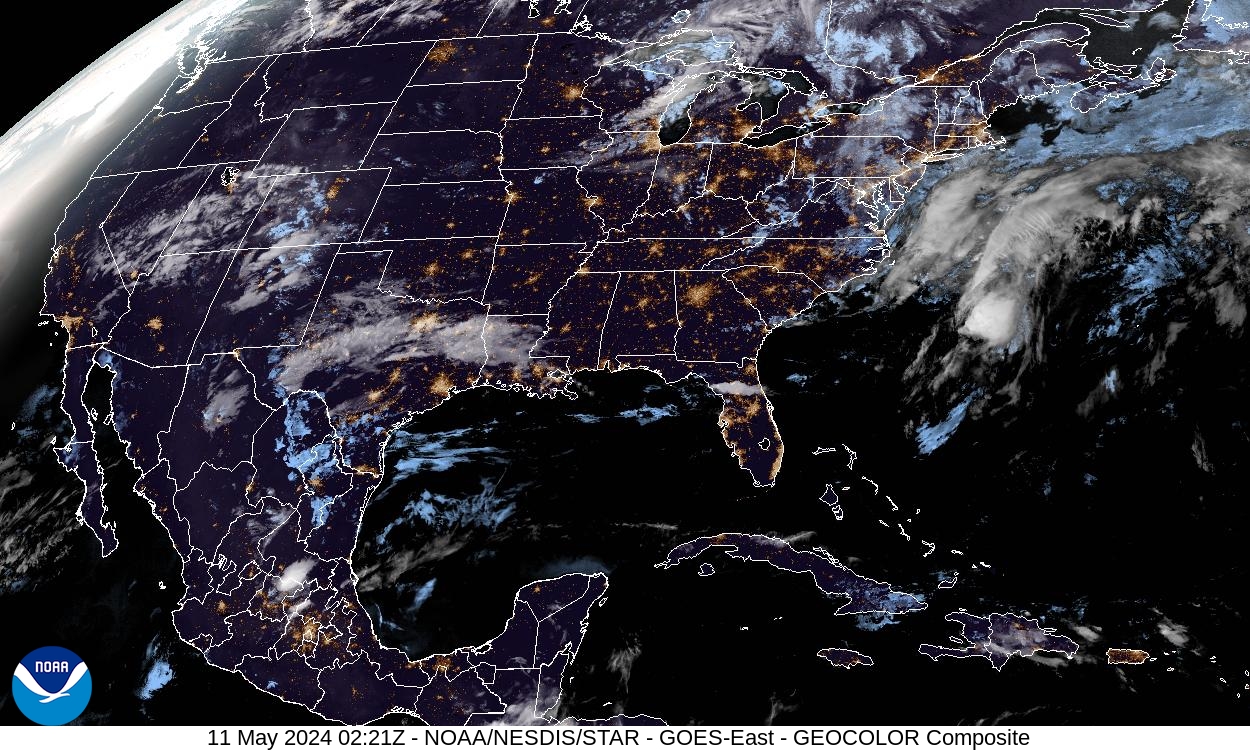
After an incredibly stormy week, most of the Lower 48 has clear skies to see the northern lights. But there are some areas where clouds and rainy weather are spoiling the view.
A deck of clouds is blocking the sky in the Northeast, from parts of Virginia into Maine, as an area of low pressure spins off the East Coast.
In the Midwest, the aurora will be hard to see through thick clouds in parts of Wisconsin, Michigan — including the Upper Peninsula — and Illinois.
A stripe of clouds is tracking across Texas, including Dallas-Forth Worth, and into Louisiana.
And in the Southwest, patchy clouds across the the Four Corners region could make the northern lights difficult to spot.
Aurora seen at least as far south as Georgia
Barely visible to the naked eye, the aurora can be seen in Atlanta in the 10 p.m. ET hour.
It is easier to see through photographs using a long exposure. The photos below, taken by CNN's Eric Zerkel and Emily Smith, used 3- and 10-second exposures.

Please enable JavaScript for a better experience.

IMAGES
VIDEO
COMMENTS
Travel advisory consultation is not a covered benefit. Prices for travel vaccines and medicines may vary depending on your Kaiser Permanente plan. To schedule an appointment for you and your family members please call: 206-326-3488. When you make your appointment, please have this information ready:
Travel Advisory Service; College; While you travel. If you need information or assistance during your trip, call Member Services at 1-888-901-4636 (TTY 711). ... If you need urgent care in a state without Kaiser Permanente providers, go to the nearest ...
Our Travel Advisory Service offers health advice tailored to your destinations, activities, and medical history. The appointments are phone consultations with our travel nurses, who are certified by the International Society of Travel Medicine and work under the direction of Kaiser Permanente's Infectious Disease physicians. ... If you're a ...
Or call Member Services at 1-888-901-4636 (TTY 711) for assistance. 1 If you regularly travel to another service area where you'll receive Kaiser Permanente care, we can also help you get a Health/Medical Record number and kp.org account for that service area. If you need care while away from home, you have options. Get information to help ...
If you have a medical emergency while traveling within the U.S., call 911 or the local emergency assistance number immediately. Then within 24 hours or as soon as reasonably possible, call our Hospital Notification Line for the United States at 1-888-457-9516 ( 206-901-4609 ), option 3 and option 4, so we can follow up on your care.
When it comes to having a happy travel experience—and returning home in one piece—a little planning can make a big difference. Kaiser Permanente can help, so no matter where you go, save the Away from Home Travel Line number to your phone so it's easy to find: 951-268-3900 (TTY 711 ). 2 Our travel team can help you 24/7 with questions ...
Save the Away from Home Travel Line phone number, 951-268-3900 (TTY 711), to your mobile device for travel support anytime, anywhere. See your doctor (sign in required) if you need to manage a condition during your trip. Refill your eligible prescriptions (sign in required), including contact lenses, to have enough while you're away.
If you get sick or injured, your care may be covered anywhere in the world. If you need urgent or emergency medical care when traveling outside of the United States, go to the nearest hospital or facility that can provide care. If you have questions or need assistance, call the Kaiser Permanente Away from Home Travel Line at 1-951-268-3900.
Our Travel Advisory Service offers recommendations tailored to your travel. Nurses certified in travel health will advise you on any vaccines or medications you need based on your destination, activities, and medical history. ... The consultation is not a covered benefit and there is a fee for a Kaiser Permanente member using the service for ...
If you need urgent or emergency medical care when traveling outside of the United States, go to the nearest hospital or facility that can provide care. If you have questions or need assistance, call the Kaiser Permanente Away from Home Travel Line at 1-951-268-3900. If you pay for services yourself, you can submit a claim for reimbursement when ...
Walk around the plane every 1 to 2 hours during flights to prevent dangerous blood clots during long periods of travel. Sitting still slows down the blood flow in your legs and raises your blood clot risk. Consider wearing compression stockings. Take steps to prevent jet lag.
Each traveler needs to complete a questionnaire. The Travel Questionnaire is located in your "medical record" on kp.org under "Questionnaires." The information gathered from the Travel Questionnaire: Helps our travel nurses make recommendations about vaccines or other preventive care you may need. Becomes part of your medical record.
The travel nurse's recommendations are reviewed by a travel doctor, who approves any travel medications and/or vaccines. Please allow 2 business days for all orders to be approved before going to your local medical center for your travel vaccination or medication. You'll also receive an email with specific care instructions for your trip.
For further questions about travel or more information please contact the Kaiser Permanente Travel Advisory Department at: 206-326-3838, option #3. We look forward to speaking with you! Answers to common questions about using Kaiser Permanente's Travel Advisory Service, and other travel-related issues.
If you have a chronic medical condition, please contact your personal care provider before your trip as well as an appointment for travel clinic. For any questions, call 1-866-454-8855. Find out more about Kaiser Permanente Travel Clinic at our Santa Clara, Campbell, Milpitas, and Mountain View location. We look forward to meeting you and ...
Travel Advisory Clinic; Welcome Tab. Health care services Tab - Selected. Downey locations Tab. Emergency, urgent & after-hours care Tab. Community & events Tab < Back. Overview; Primary care; ... Kaiser Permanente health plans around the country: Kaiser Foundation Health Plan, Inc., in Northern and Southern California and Hawaii • Kaiser ...
Call the Away from Home Travel Line at 951-268-3900, and let them know you plan to visit another Kaiser Permanente service area for care. • You'll get a new medical record number (MRN) or health record number (HRN) and information on making an appointment.
Saba Travel Advisory: Level 1: Exercise Normal Precautions: October 16, 2023: Take 90 Seconds for Safer Travel. Travel Advisory Levels. TRAVEL ADVISORIES AND ALERTS: THE DETAILS Enroll in STEP. Subscribe to get up-to-date safety and security information and help us reach you in an emergency abroad.
The U.S. Department of State issued a worldwide travel advisory on Friday due to a "potential for terrorist attacks, demonstrations, or violent actions against U.S. citizens and interests ...
The U.S. State Department reissued an "increased caution" travel advisory to Tunisia due to terrorism. The State Department reissued the Level 2: Increased Caution advisory as an update to ...
The US State Department issued a worldwide security alert on Friday due to the potential for terrorist attacks against LGBTQI+ people and events.
The State Department said in a travel advisory that U.S. citizens should stay alert in tourist areas and places popular with LGBTQ+ people. It did not mention specific threats or advise against ...
If you need a phone appointment with a travel nurse, schedule it 4 to 6 weeks prior to your departure. If you're leaving sooner or even at the last minute, you should still consider scheduling an appointment. If you only need a COVID-19 test for travel and prefer not to schedule a travel nurse appointment, you can request a COVID-19 test by ...
The State Department is warning Americans traveling abroad of "the potential for terrorist attacks, demonstrations, or violent actions against U.S. citizens and interests."
Travel Advisory: Portland Aerial Tram to close for routine maintenance May 23-27. Traffic Advisory Shuttle service will be available; plan for extra time. Published. May 16, 2024 4:35 pm. Updated. May 16, 2024 4:36 pm. Workers atop a Portland Aerial Tram rope tower during the haul rope replacement maintenance project in 2016. Photo courtesy of ...
Generally, it takes just eight minutes for light to travel 93 million miles to the Earth from the sun, but astrophysicist Janna Levin said the energized particles causing the current wave of ...